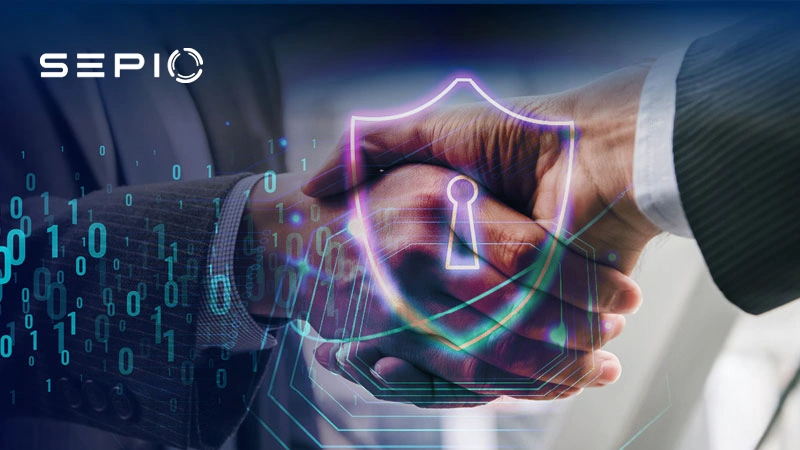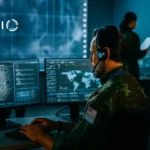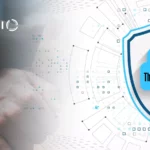What is a CISO?
A CISO (Chief Information Security Officer) is an executive responsible for developing and implementing an organization’s information security strategy, ensuring that digital assets and technologies are protected from cyber threats. The CISO role is central to overseeing the organization’s cybersecurity posture and managing risks effectively, with clearly defined responsibilities that span both technical and business domains.
Why is the CISO Role Important?
The Chief Information Security Officer (CISO) role is critical in modern organizations. In today’s digital landscape, cyber threats are constantly evolving. A CISO is responsible for establishing and maintaining the enterprise’s vision, strategy, and security program. Their goal is to ensure that information assets and technologies remain protected. Simply put, the CISO role is vital for safeguarding digital infrastructure and ensuring business continuity.
According to studies, CISO leaders now influence over 90% of board and management decisions. Yet, Gartner reports that only 12% of CISOs are “highly effective”. So, what defines an effective CISO role? It extends far beyond merely preventing cyberattacks. Successful CISOs must be multidimensional, possessing a diverse skill set that allows them to navigate complex risk management challenges. Below is a list of key traits and responsibilities that define an effective CISO role.

Role of the CISO in Business Acumen
As a key aspect of the CISO role, developing security policies and initiatives that align with business objectives is essential. Effective CISOs must not only protect the organization but also contribute to its overall success. A security strategy that fails to support business goals provides little value.
To ensure a security approach that meets organizational needs, CISOs must possess strong business acumen and a deep understanding of all aspects of business operations. This ability enables them to integrate cyber resilience seamlessly into the company’s broader strategy, driving both risk reduction and business growth. These are some of the crucial CISO responsibilities.
CISO Role in Stakeholder Interactions
Aligning with business goals requires the CISO role to involve active collaboration with key stakeholders. Additionally, a CISO must understand the needs of various departments to develop security initiatives that provide value across the organization.
An effective CISO builds strong relationships with business executives, ensuring seamless interdepartmental communication and fostering a risk-aware culture that aligns with organizational objectives.
Good Communicator
Most stakeholders are not IT professionals, making it essential for the CISO role to bridge the gap between technical and non-technical audiences. Effective CISOs tailor their communication to the audience, avoiding esoteric jargon and ensuring key security messages are easily understood.
Clear communication fosters a more receptive audience. This improves organizational resilience, whether implementing new initiatives or responding to an incident. A CISO who can clearly explain cybersecurity risks and strategies in business terms is more likely to gain executive buy-in. This helps drive meaningful security improvements.
The Power of CISO Leadership
Communication is a key component of strong leadership. Within the CISO role, effective communication is essential for inspiring and motivating employees, even in areas where cybersecurity may not be a primary focus. However, motivation alone is not enough; CISOs must embed security as a fundamental part of the workplace culture. This starts with making cybersecurity a well-understood and accepted topic across the organization, which effective CISOs achieve through influential leadership.
A CISO can influence executives to take an active role in managing security risks. By assigning security-related responsibilities to non-IT executives, CISOs encourage broader engagement in cybersecurity initiatives. Additionally, the CISO role is responsible for fostering a culture of resilience throughout the organization, ensuring that security awareness permeates every level. By building this organization-wide mindset, CISOs significantly reduce the risk of insider threats and strengthen overall security posture.
CISO Role in Organizational Skills for Security Project
The CISO role involves managing complex cybersecurity projects that are often time-consuming and require meticulous planning. An effective CISO must possess strong organizational skills to streamline processes, allocate resources efficiently, and ensure projects stay on track.
Successful CISOs excel at strategic planning, budgeting, and task coordination, enabling them to drive cybersecurity initiatives forward while minimizing disruptions. By maintaining a structured approach, CISOs enhance the organization’s resilience and ability to withstand evolving threats.
Technical Background of CISO Role
While the CISO role requires a diverse skill set, a strong technical background remains essential. At its core, a CISO is responsible for both cybersecurity and technology, requiring a solid foundation in cybersecurity to develop effective security initiatives, make risk-based decisions, and meet governance, risk, and compliance (GRC) assessments.
Additionally, the cyber landscape is constantly evolving, with new threats, vulnerabilities, and tools emerging daily. To stay ahead, CISOs must continuously update their technical knowledge. An effective CISO embraces continuous learning—adapting, relearning, and even unlearning outdated practices, to maintain a proactive and resilient cybersecurity posture.
The Role of the CISO in Safeguarding Information Assets
The CISO role is essential for protecting an organization’s data and information assets in an increasingly digital and interconnected world. CISOs play a critical role in securing sensitive information, ensuring business continuity, and maintaining the trust of customers and stakeholders.
With cyber threats evolving rapidly, organizations rely on effective CISOs to implement robust cybersecurity strategies and mitigate risks. The question is, do you have what it takes to excel in the CISO role?
Ready to Strengthen Your Organization’s Cybersecurity ?
The CISO role is critical in safeguarding your organization’s digital assets. If you’re looking to elevate your cybersecurity strategies and ensure your organization is protected against emerging threats, we’re here to help.
Schedule a demo today to explore how our solutions can support your cybersecurity initiatives and streamline risk management. Our team is ready to guide you through the tools and strategies that can make a difference.






